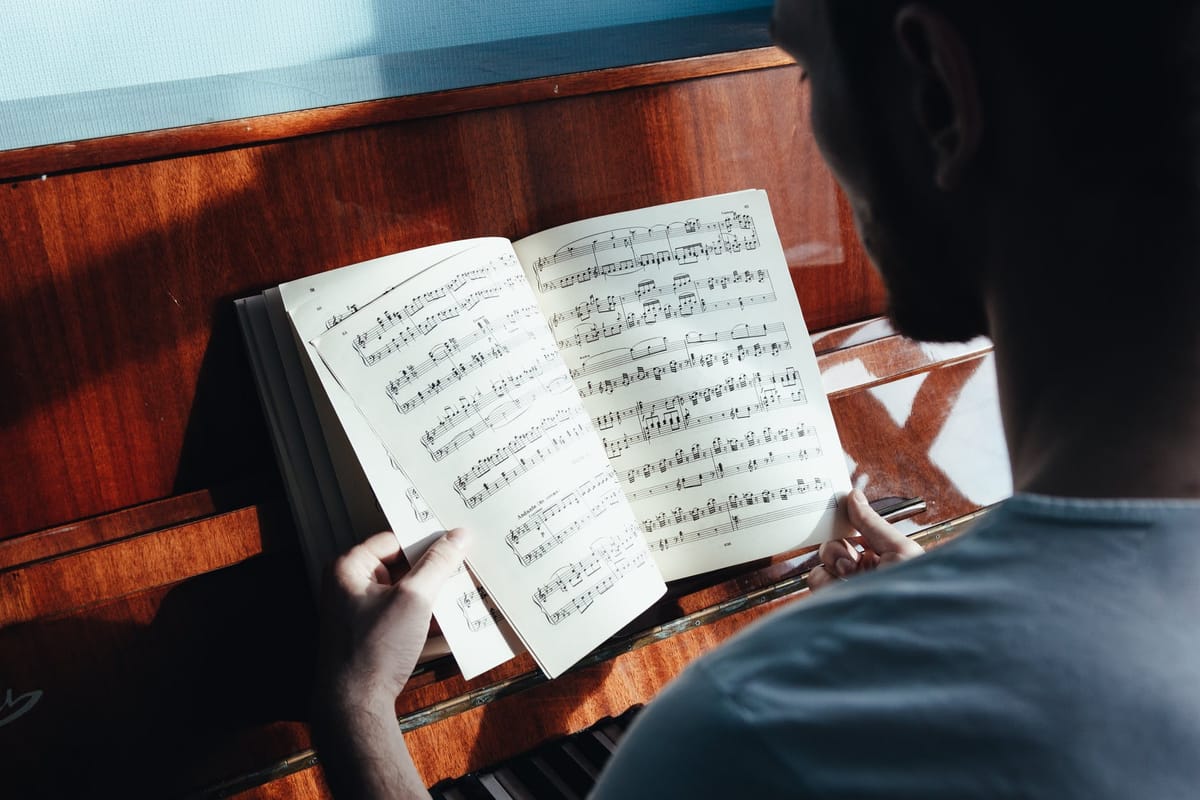University Application Success with ABRSM Grade 8 Piano Pieces? | A Guide to UCAS Points

If you – or your child – are planning on going to university, then you’ll want to take Grade 8 piano. Those who achieve a Distinction in Grade 8 piano and theory receive an extra B-grade at A-Level. This extra B-grade is available for all those who use their free time to gain a skill and to do something they love! It sounds ideal, but you’ll need to find the right teacher and the right programme if you plan to get there.
What is Grade 8 piano?
Grade 8 piano is the highest practical graded music exam available in the UK. It is not, however, the highest piano qualification you can take. The three main exam boards in the UK – the ABRSM, London College of Music, and Trinity – offer four levels of diplomas beyond Grade 8 piano.
The Grade 8 exam is for those who have taken Grades 1-7 piano, though there is no prerequisite to take the Grade 8 ABRSM exam. Grade 8 piano is a momentous achievement for many who have committed years of practise to the instrument, and achieving a Distinction at Grade 8 is widely respected amongst pianists of all ages and abilities – and for good reason. It is important to remember, however, that pianistic ability is more than a certificate, though having Grade 8 piano can come in handy. The ABRSM, for example, require that the candidate hold a Grade 8 certificate in the instrument – or in a related instrument – before they can take the diploma exams. Also, those who are applying for university will receive UCAS points for attaining Grade 8 piano.
Does Grade 8 piano count as an A-level?
The simple answer is: yes (but it’s not quite that simple). Grade 8 piano is classed as a Level 3 qualification in the UK. Level 3 qualifications include A-levels, amongst other qualifications. This means that Grade 8 is the equivalent of an A-level in that it falls in the same classification bracket as A-Levels. Furthermore, a Distinction at Grade 8 will give you 30 UCAS points. For comparison, a C-grade at A-level is worth 32 points, so you can assume that Grade 8 will give you an extra qualification at A-level – in this case, (just below) a C-grade.
There are, however, ways to improve this grade. Add in a Distinction in Grade 8 Theory and you will gain another 10 UCAS points. Combine the Distinction at Grade 8 piano with the Distinction at Grade 8 theory and you have a total of 40 UCAS points. For reference, a B-grade at A-level is exactly 40 UCAS points.
Now that’s more like it!
It’s amazing to know that – with the right guidance – you can achieve the equivalent of a B-grade in UCAS points at A-level by taking piano and theory lessons consistently over a number of years, and all for doing something you love!
Is ABRSM Grade 8 piano hard?
If you have passed – or play to – Grade 7 piano, the ABRSM suggest that you will need 320 hours of practise by the time you start Grade 8 to the time you take the Grade 8 exam. They also suggest that you will need 54 hours of lessons from the start to end of Grade 8.
This means that if you practise for at least an hour a day and take an hour-and-a-half of lessons each week, you’re likely to complete Grade 8 to Distinction level in under a year.
These figures published by the ABRSM are, of course, only intended as a guide. You may take the exam sooner, or perhaps it will take you a little longer. Nonetheless, they form an ideal starting point from which you can base you plans and expectations.
My favourite ABRSM Grade 8 Piano Pieces from the 2021-22 syllabus are:
– Rachmaninoff: Moment Musical in Db, Op. 16 No. 5
– Schubert: Impromptu No. 2 in Ab, Op. 142, D. 935.
– Debussy: Rêverie
– Khachaturian: Toccata
– Villa-Lobos: O polichinelo
Here is the great Arthur Rubinstein playing ‘O polichinelo’. You’ll be glad to know that he plays this much faster than you’ll need to!
Each of my favourite pieces are on the Other pieces for Grade 8 list (i.e. the alternative list). Though they may not give you any extra marks in an exam, they are sure to win a few brownie points since they are played less often!
It’s also great to see representation from female composers in the syllabus, including works by Clara Schumann and Chaminade.
Be sure to start your preparation for the aural tests early. The Aural Training in Practice: ABRSM Grades 6-8 book is an excellent resource.
Is Grade 8 piano professional?
Although attaining Grade 8 piano is certainly a fantastic achievement, its status as a professional qualification is definitely less certain. For instance, unlike the four diplomas that follow Grade 8, you don’t gain letters after your name.
The four diplomas offered by the ABRSM are:
– ARSM
– dipABRSM
– LRSM
– FRSM
Each carry professional recognition, as well as letters.
The highest qualification – the Fellowship of the Royal Schools of Music (FRSM) – is the equivalent to a Masters or Postgraduate degree.
Remember: Grade 8 is the equivalent of an A-Level.
Those who received their professional training at a Music College at postgraduate level hold a Master of Music in Solo Piano Performance. The FRSM is the equivalent of this, though bear in mind that those who studied at Music College received full-time training towards a professional career, rather than a (typically) part-time diploma.
Some of the most renowned music colleges in the UK include:
– The Royal Northern College of Music (Manchester)
– The Royal College of Music (London)
– The Royal Academy of Music (London)
– The Royal Conservatoire of Scotland (Glasgow)
– The Royal Welsh College of Music (Cardiff)
Since the FRSM – the highest piano diploma – is the equivalent of an MMus in Solo Piano Performance, this suggests that those who are taking Grade 8 will want to study with a teacher who has achieved one of these qualifications.
How to find a Grade 8 piano teacher who will help me get the most UCAS points?
The simplest answer is: find someone who has a Master of Music in Solo Piano Performance from one of the Music Colleges listed above. For example, if you see MMus (RNCM), this means the teacher gained their Masters from the Royal Northern College of Music. This is where I achieved my Masters. Finding the right teacher is important because if you get a Distinction in Grade 8, you get the most UCAS points. In fact, the difference between a Distinction and a Pass at Grade 8 is substantial where UCAS points are concerned. For most, this means taking lessons online since it can be a challenge to find such a teacher in local areas. Remember the student who attained a Distinction in Grade 8 piano and theory and who got the equivalent of a B-grade a A-level (40 UCAS points)? Well, a student with a Pass in Grade 8 piano alone attained just 18 UCAS points: the equivalent of (approximately) an E-grade.
So, we’ve established that Grade 8 piano is the equivalent of an A-level. Did you know that Grade 6 and Grade 7 are also the equivalent of an A-level? This is because – like Grade 8 – they are Level 3 qualifications. This means you’ll want to start searching for a teacher with a Master of Music in Solo Piano Performance when you are starting Grade 5 piano. That way, you can be sure you’ll have the teacher in place to help you get the most UCAS points for your university application from Grade 6 onwards.





